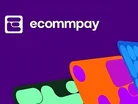Are Payment Method Gaps Holding Back e-Commerce Conversion?

Payment service provider Ecommpay and IMRG, the UK's online retail association, have identified significant variations in e-commerce performance tied to checkout configuration and payment methods in the release of their latest study.
The retail sector report reveals that UK e-commerce sites convert 58% of checkout attempts into sales, with distinct patterns emerging between different implementations.
Single-page checkouts achieve 61% conversion rates compared to 56% for multi-page alternatives, while guest shoppers generate 59% of orders yet convert at 52%, compared to 64% for registered customers.
Credit and debit cards remain central to UK e-commerce, generating half of all revenue, while alternative payment methods, including digital wallets and buy-now-pay-later services, account for the remainder. The research indicates that half of retailers have yet to implement localised payment options, which enable customers to use region-specific methods.
What's more, the data shows notable differences in completion rates based on payment options. Retailers offering four express checkout methods achieve 67% conversion rates, while those with a single option convert at 54%. Sites without express checkout options report 52% conversion rates.
Technical barriers to completion
Perhaps most stark is the report's analysis of abandonment patterns, which shows that customers typically exit the checkout process after completing 90% of the required steps, pointing to friction at the payment stage.
Retailers report that limited functionality constrains their ability to add payment methods or modify checkout flows, while performance challenges, including slow loading times and system instability, are cited as creating additional barriers to completion.
These disparities are further fuelled by identified gaps in digital wallet implementation, specifically Google Pay and Apple Pay integration. This limitation affects retailers' capacity to process mobile payments effectively.
Standards and accessibility
Elsewhere, the research highlights requirements for checkouts to meet WC3 WCAG 2.2 AA accessibility standards, which establish guidelines for making web content accessible to users with disabilities.
It's clear that retailers face challenges maintaining these standards whilst implementing new payment methods. Payment service providers support compliance through pre-built components that incorporate accessibility features.
Moshe Winegarten, Chief Revenue Officer at Ecommpay, says: "An integrated PSP solution that builds all aspects of the payment experience into one full stack can consolidate consumer choice and checkout flow, as well as improve operational efficiency.
"The key is to select a payment provider capable of scaling globally, with access to a huge range of payment methods. Then merchants will benefit from increased authorisation rates and drastically decreased transaction costs."
It's clear that the joint findings of Ecommpay and IMRG demonstrate that successful e-commerce checkout implementation requires balancing payment options with technical delivery. Retailers achieving higher conversion rates have addressed both guest checkout friction and payment method diversity.
Fixing the disparities between checkout configurations and payment methods clearly present opportunities for improvement across the sector, particularly in guest checkout optimisation and express payment implementation.
With guest transactions representing the majority of orders, addressing these areas could yield material improvements in overall conversion rates for retailers.
**************
Make sure you check out the latest edition of FinTech Magazine and also sign up to our global conference series – FinTech LIVE 2024.
**************
FinTech Magazine is a BizClik brand.



